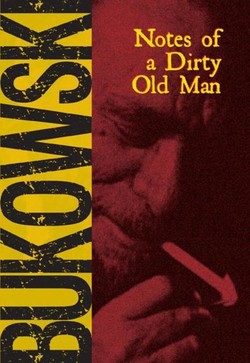Notes of a Dirty Old Man

Описание книги
A compilation of Charles Bukowski's underground articles from his column «Notes of a Dirty Old Man» appears here in book form. Bukowski's reasoning for self-describing himself as a 'dirty old man' rings true in this book. "People come to my door—too many of them really—and knock to tell me Notes of a Dirty Old Man turns them on. A bum off the road brings in a gypsy and his wife and we talk . . . . drink half the night. A long distance operator from Newburgh, N.Y. sends me money. She wants me to give up drinking beer and to eat well. I hear from a madman who calls himself 'King Arthur' and lives on Vine Street in Hollywood and wants to help me write my column. A doctor comes to my door: 'I read your column and think I can help you. I used to be a psychiatrist.' I send him away . . ." "Bukowski writes like a latter-day Celine, a wise fool talking straight from the gut about the futility and beauty of life . . ." —Publishers Weekly "These disjointed stories gives us a glimpse into the brilliant and highly disturbed mind of a man who will drink anything, hump anything and say anything without the slightest tinge of embarassment, shame or remorse. It's actually pretty hard not to like the guy after reading a few of these semi-ranting short stories." —Greg Davidson, curiculummag.com Charles Bukowski was born in Andernach, Germany on August 16, 1920, the only child of an American soldier and a German mother. Bukowski published his first story when he was twenty-four and began writing poetry at the age of thirty-five. His first book of poetry was published in 1959; he went on to publish more than forty-five books of poetry and prose, including Pulp (Black Sparrow, 1994), Screams from the Balcony: Selected Letters 1960-1970 (1993), and The Last Night of the Earth Poems (1992). Other Bukowski books published by City Lights Publishers include More Notes of a Dirty Old Man, The Most Beautiful Woman in Town, Tales of Ordinary Madness, Portions from a Wine-Stained Notebook, and Absence of the Hero. He died of leukemia in San Pedro on March 9, 1994.
Отрывок из книги
City Lights Books San Francisco
So this strange idealist and romantic created OPEN CITY. “How about doing us a weekly column?” he asked off-handedly, scratching his red beard. Well, you know, thinking of other columns and other columnists, it seemed to me to be a terribly drab thing to do. But I started out, not with a column but a review of Papa Hemingway by A. E. Hotchner. Then one day after the races, I sat down and wrote the heading, NOTES OF A DIRTY OLD MAN, opened a beer, and the writing got done by itself. There was not the tenseness or the careful carving with a bit of a dull blade, that was needed to write something for The Atlantic Monthly. Nor was there any need to simply tap out a flat and careless journalism (er, journalesé??). There seemed to be no pressures. Just sit by the window, lift the beer and let it come. Anything that wanted to arrive, arrived. And Bryan was never a problem. I’d hand him some copy — in the early days — and he’d flit through it and say, “OK, it’s in.” After a while I’d just hand him copy and he wouldn’t read it; he’d just jam it into a cubbyhole and say, “It’s in. What’s going on?” Now he doesn’t even say, “It’s in.” I just hand him the copy and that’s that. It has helped the writing. Think of it yourself: absolute freedom to write anything you please. I’ve had a good time with it, and a serious time too, sometimes; but I felt mainly, as the weeks went on, that the writing got better and better. These are selections from about fourteen months worth of columns.
.....
then Bryan told me something about it. hung up.
that was it.
.....
